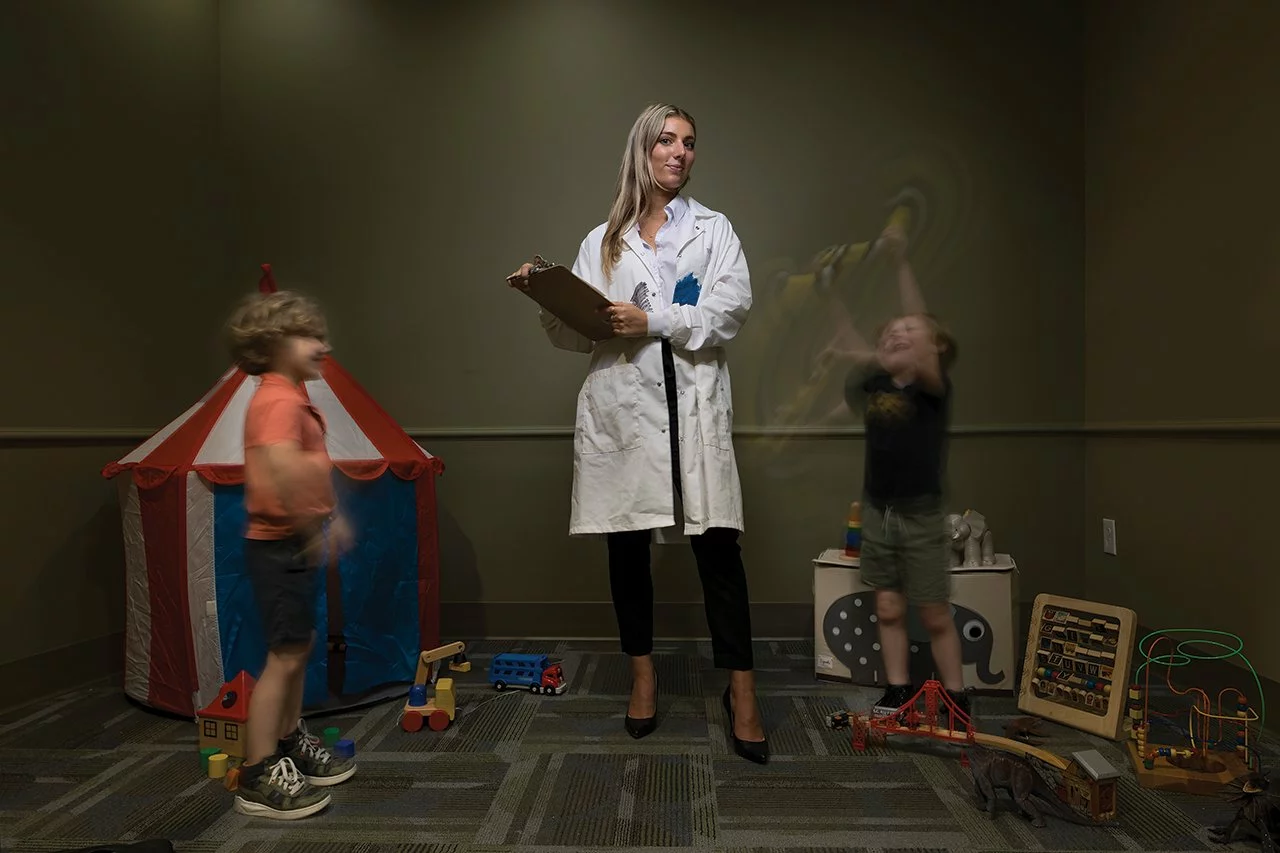Psychology Major
Learn about the mind, the brain and behavior.
Why do people behave in certain ways? How does the brain work? How do children’s skills develop? How can we help people struggling with mental illness? Through a blend of coursework, laboratory research and internships, you’ll develop the skills and knowledge you need to grapple with these fundamental questions. You’ll build a solid foundation for careers in areas like healthcare, business and law.
Why study psychology at the College of Charleston?
Here, you'll find small classes taught by professors. You'll learn to think critically, communicate effectively, challenge existing ideas, and confront new ones. Personalize your coursework, explore different areas and customize your program. You'll have the chance to pursue internships and research experiences. Whatever your interest, you’ll have the opportunity to receive an exceptional education.
What will I learn?
We offer bachelor of arts and bachelor of science degrees. Whichever path you choose, you’ll start with core coursework in fields like clinical psychology, child development and neuroscience. Through courses in statistics and research methods, you’ll learn how new discoveries are made. Then you can select from more than 30 electives, including environmental psychology, positive psychology and pharmacology.
Psychology, B.A.
You should consider the B.A. program if you want a strong foundation in psychology. This program prepares you for a wide range of careers.
View Curriculum: Psychology, B.A.
Psychology, B.S.
If you’re particularly interested in research, you should choose the B.S. This program emphasizes mathematical and methodological skills.
View Curriculum: Psychology, B.S.
Program Highlights
-
Internship Opportunities
Incorporate real-world experience into your curriculum by enrolling in one of our internship courses. You can develop strong connections with community agencies including:
- the Medical University of South Carolina.
- the Johnson VA Medical Center.
- the Charleston Police Department.
- Carolina Coast Behavioral Services.
- Students 4 Support (the College’s own peer-counseling team).
These internships can be the gateway to your first job after graduation.
-
Research
It’s easy to get involved in research as an undergraduate at the College. You can start by helping with a project in a faculty member’s lab, then take on a greater role as your skills and interests grow. You’ll learn about all aspects of research from experiment design to publication. You might even have the chance to present your findings at local, regional or national conferences.
-
Study Abroad
We offer several study-abroad programs that incorporate psychology courses. Recent experiences have included the following:
- studying early-childhood hospitalization in Florence, Italy (in conjunction with the M.S. in Child Life program).
- conducting neuroscience research in Bremen, Germany.
- witnessing community resilience and rebuilding after socio-political violence and trauma in Cambodia.
Careers & Outcomes
Psychology is relevant to every human endeavor, making the skills learned in our program applicable to just about any career. Recent graduates have gone on to careers with hospitals, nonprofits, schools, businesses and mental health service providers. Many have pursued graduate programs in counseling, social work, research, medicine or our own program in Child Life.


Researching Your Future
Leah Lancellotta ‘23 pursued every opportunity while studying psychology at the College. She engaged in undergraduate research, conference travel, internships and volunteer work. She envisions herself working in a university medical center after earning her Ph.D.—and she’s well on her way.
Read More
About the Minor
- biology.
- business administration.
- communication.
- exercise science.
- public health.
- sociology.
- teacher education.
View Curriculum: Psychology Minor